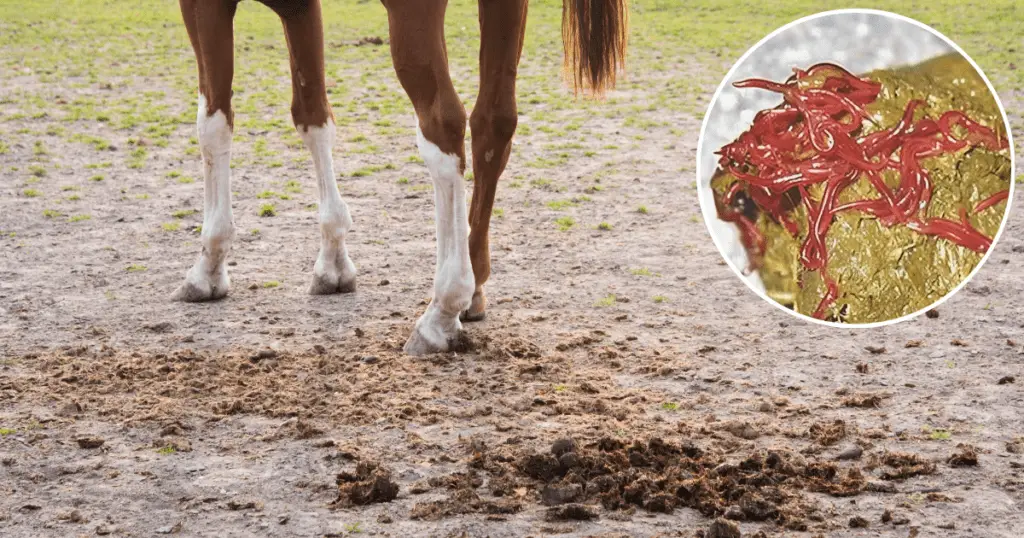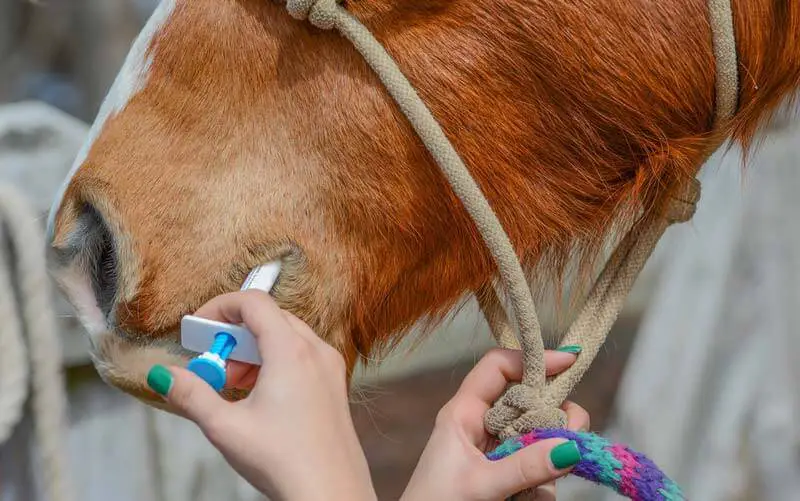I found little red worms in horse poo. What should I do?
As a horse owner, it can be concerning to see little red worms in your horse’s poo. These worms are known as small strongyles, or cyathostomins, and are one of the most common types of internal parasites in horses. They are typically found in the large intestine and can cause a variety of health issues if left untreated.

Table of Contents
If you notice little red worms in horse poo, it’s important to take action right away. These worms can cause damage to the intestinal lining, leading to poor nutrient absorption and weight loss. In severe cases, they can even cause colic or intestinal blockages. Fortunately, there are several steps you can take to help protect your horse’s health and prevent further infestations.
Identifying Little Red Worms in Horse Poo or Feces
Appearance of Little Red Worms
Little red worms in horse poo are actually the larvae of small strongyles, also known as cyathostomins. These worms are typically only a few millimeters long and can be difficult to see with the naked eye. However, if you look closely, you may be able to see small, red, thread-like worms in your horse’s manure.
Lifecycle of Little Red Worms
The lifecycle of small strongyles is complex and involves several stages. Adult worms live in the horse’s large intestine and lay eggs that pass out of the horse in its manure. These eggs hatch into larvae, which then develop into infective larvae that can be ingested by the horse when grazing. Once they are ingested they can burrow into the intestinal lining and stay there for extended periods of time until they pupate or mature and migrate into the intestinal tract.
Symptoms of Little Red Worms
Small strongyles can cause a range of symptoms in horses, including weight loss, poor coat condition, diarrhea, colic, and even death in severe cases. However, many horses infected with small strongyles show no obvious symptoms, making it difficult to diagnose the problem without a fecal egg count.
Diagnosis is important because small strongyles can cause significant damage to the horse’s intestine over time, leading to chronic colic and other health problems. Appropriate deworming and fecal egg counts can help prevent and manage small strongyle infections.
Preventing Little Red Worms
Regular Deworming
Always make sure to deworm your horse regularly to prevent little red worms from infesting their digestive system, however follow the manufacturers recommendations to intervals so you prevent resistance from occurring. Consult with your veterinarian to determine the appropriate deworming schedule based on your horse’s age, weight, and health condition.
Pasture Management
Keep your horse’s pasture clean and well-maintained to prevent little red worms from breeding and spreading. Remove manure from the pasture regularly and dispose of it properly. I also avoid overgrazing and overcrowding the pasture, which can create an ideal environment for worms to thrive.
Hygiene
Always practice good hygiene when handling your horse to prevent the spread of little red worms. I wash my hands thoroughly before and after handling my horse, and I use separate equipment for each horse to avoid cross-contamination.
Treatment for Little Red Worms
Medication
If you suspect that your horse has little red worms, it is important to consult with a veterinarian to determine the best course of treatment. Your vet will recommend a dewormer medication that specifically targets small strongyles, which are the type of worms that cause red worm infestations.
The medication may come in the form of a paste, gel, or granules, and you will need to administer it orally to your horse. Be sure to follow the dosage instructions carefully and give the medication at the recommended intervals to ensure that all of the worms are eliminated.
Natural Remedies
In addition to medication, there are also some natural remedies that may help to prevent or treat little red worms in horses. These remedies include:
- Feeding your horse garlic, which is believed to have natural deworming properties.
- Adding diatomaceous earth to your horse’s feed, which can help to kill parasites in the digestive tract.
- Using herbal supplements such as wormwood, black walnut, and clove, which are known for their anti-parasitic properties.
It is important to note, however, that natural remedies should not be used as a substitute for proper veterinary care. Always consult with your veterinarian before trying any new treatments or supplements. Always confirm the efficacy of any treatment with a faecal egg count every 2-3 months in case a worm burden is forming.
Conclusion
In conclusion, finding little red worms in your horse’s poo can be alarming, but it is a common problem that can be easily treated with the right dewormer. It is important to identify the type of worm your horse has in order to choose the most effective dewormer.
Regular deworming and good pasture management practices can help prevent future infestations. It is also important to practice good hygiene when handling your horse’s manure to prevent the spread of parasites to other horses.
If you are unsure about which dewormer to use or have any concerns about your horse’s health, consult with your veterinarian. They can provide guidance and recommend the best course of action for your horse’s specific needs.
Read more about Horse Worming



